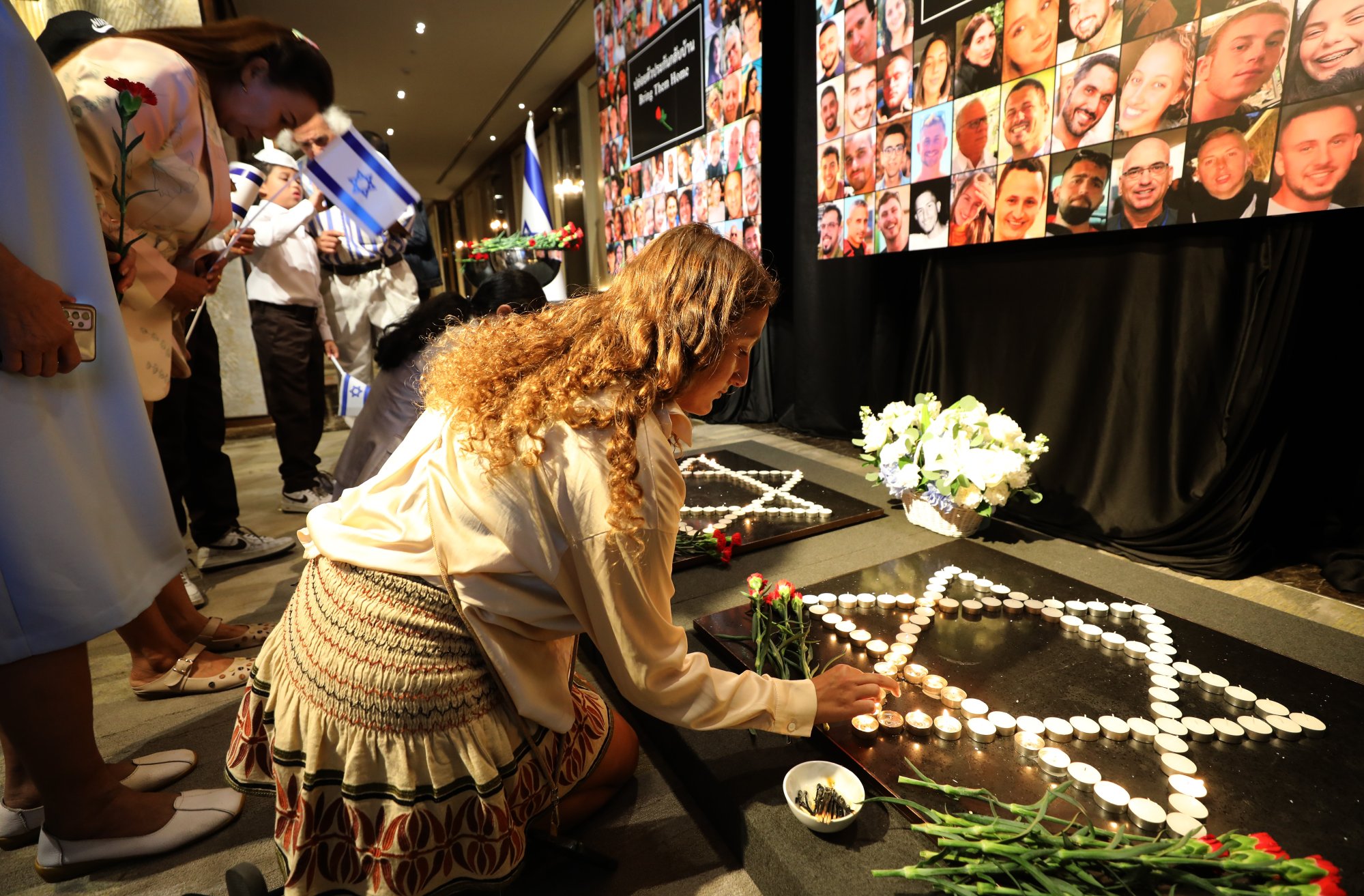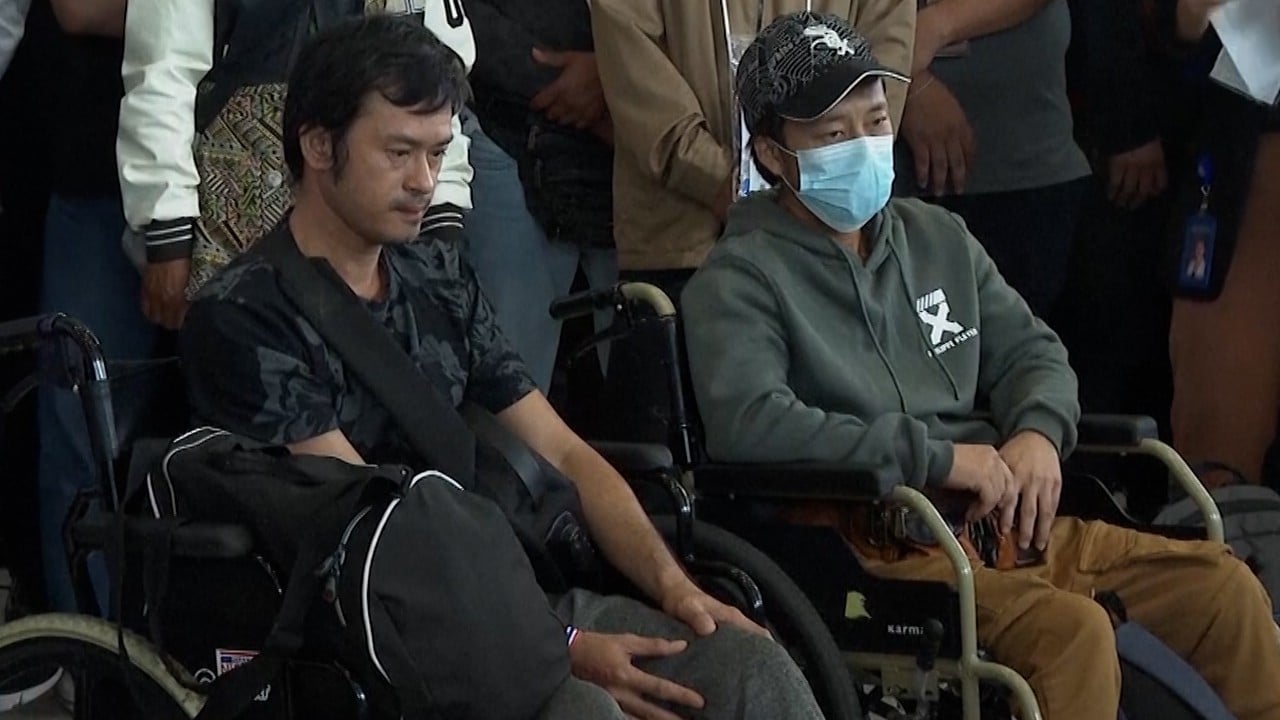
‘Not acceptable’ for Israel to use money to retain Thai workers, PM Srettha Thavisin says
- The Israel embassy in Bangkok admits monetary incentives were used to entice Thai workers to stay on, but denies their salaries were deferred
- About 30,000 Thais work in Israel, mostly as agricultural labourers, and some say they have to remain as they still need to pay off debts
Srettha acknowledged many of the workers were choosing to remain in Israel for economic reasons, but that it was “unacceptable” for the country’s employers to offer increased wages or delay payment of salaries to entice them to hang on.
Srettha said he had expressed his displeasure over the matter in a meeting with Israel’s ambassador to Thailand, Orna Sagiv, on Monday.
“I strongly conveyed it’s not acceptable that money is used by employers to lure them. I think it’s not right,” he said.
Malaysia PM slams West’s human rights hypocrisy in supporting ‘brutal’ Israel
The envoy initially said she was not aware of the issue and would look into it. The Israeli embassy in Bangkok admitted that additional monetary incentives were used to retain Thai workers but denied their salaries were deferred.
Srettha, also the finance minister, urged all Thai workers to leave the war zone and pledged to help the returnees find employment opportunities.
He underscored the urgency of spurring the kingdom’s growth – which declined from 2.6 per cent year-on-year in the first quarter to 1.8 per cent in the second – as exports slumped, to avoid situations where people have to work in dangerous conditions to get by.
“That is why we need to boost the economy so that it expands as fast as possible to solve the problems and build the future for the people,” Srettha said.

But not everyone was convinced.
Singh Donfueng, a 38-year-old Thai farmworker who arrived in May, said he planned to stay in Israel to pay off a 100,000 baht (US$2,765) debt even though his relatives wanted him to return out of worry about his safety.
“They want me to go back, but how could I? I would return with no savings and still have debts to pay,” he said.
About 30,000 Thais work in Israel, mostly as agricultural labourers.
Thailand said at least 30 of its nationals had been killed and 19 were among those taken hostage during the rampage by the Hamas militant group in Israeli towns that left about 1,400 people dead on October 7.
Israel pounded the Gaza Strip in response to the violence, killing thousands, many of them children.
Srettha said the fate of the 19 Thais remained unknown and hoped Hamas would set them free as they had nothing to do with the conflict, The Bangkok Post reported.
The group, which controls the blockaded Palestinian territory, has released four hostages so far.
Thailand’s Foreign Affairs Ministry last week said it had organised daily repatriation flights for its citizens and at least 8,160 Thais had registered their desire to be evacuated.
The labour department said more than 2,000 people had already returned to Thailand.
To Israel and the West, Hamas are terrorists. But for Malaysia?
Labour rights groups said the war also highlighted some of the issues faced by migrant workers in conflict zones.
“When you have migrant populations segregated from the general population, what inevitably happens … is they become largely invisible,” said Nick McGeehan, co-founder of Fairsquare, a British migrant worker rights group.
“So when a conflict breaks out, they’re not on anyone’s priority list,” said McGeehan, who has researched the working conditions of Thai agricultural labourers in Israel.
Additional reporting by Reuters

